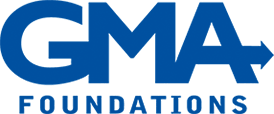
Nonprofit organizations can be much more courageous in confronting racial and gender inequality. And, unless nonprofits lead the way to equity, according to initiatives such as Race to Lead ,Report the Abuse, and Humanitarian Women’s Network, they have a role in perpetuating societal inequalities.
Eager to dig deeper, we invited a group of anti-racist activists, leaders, and consultants from the Boston area to talk about how they are helping nonprofit organizations talk about race. We followed the lead of our earlier NPO Conversation about shifting gender norms in organizations and invited people to talk about what is working well in their work for racial equity. The rich conversation surfaced several tips for nonprofit leaders willing to look inward to address racial equity, thus facing their own organizational challenges and leading the way to a diverse, equitable, and inclusive society for the rest of us.
Stop tiptoeing around race
Everyone agreed that simply starting a conversation is a breakthrough. The need for bold leadership at the top may be a cliché but it is essential. The work is hard. It pushes buttons. It pushes everyone outside their comfort zones. Not all leaders have the awareness or skill set to support the work. They may have to address resistance along the way and be creative and diplomatic as they engage the board and staff in talking about race.
Take risks and experiment
A team of internal champions of racial equity work must bear the brunt of coordinating the work. They will have to nurture an experimental mindset in the organization because there are no recipes for success or easy fixes. The journey will have bumps and detours. Even failure can be progress in disguise. Several people shared stories when failure or frustration led to “a-aha” moments or breakthroughs.
Build emotional intelligence
The conversation expanded on the familiar admonition, “Get comfortable with discomfort!” Managing this contradiction requires people to develop emotional literacy. Emotional literacy has been called the other blind spot of nonprofit organizations. Race is a hot-button issue. How do we recognize our own emotions, listen empathetically to others, or express our emotions productively? How do you ask people to accept being uncomfortable, but not make people feel unwelcome or threatened while creating spaces for reflection in your organization?
Learn together and apart
Several people emphasized the value of racial identity caucusing as an approach for scaffolding learning and deliberation. Identity or affinity caucuses are based on the idea that that white people and people of color have work to do separately and together. The learning curve on concepts such as white privilege, implicit bias, and structural inequality is not symmetrical for people of color and white people. The goal of identity or affinity groups is to give people with similar racial or ethnic backgrounds an opportunity to work on issues that are very personal.
Stay focused on racial equity with an action plan
If short, diversity or anti-bias trainings barely scratch the surface in exploring systemic inequities; how can organizations go deeper? Peer learning and organizational self-assessment get the ball rolling, but the key driver of accountability is an action plan. Action plans with benchmarks are the blueprint for changing practices, procedures, policies, culture and relationships that make organizations more equitable and inclusive.
Continue the conversations about race
Conversations about the nature of systemic racism and inequity in the nonprofit sector are rare. We need more purposeful talk to learn from each other and recognize the privileges and biases that we all bring to the work. By cultivating awareness about race, class, and gender inequality in our own organizations, we are better prepared to confront it in the world. Nonprofits reflecting on racial equity in their own organizations are positioning themselves to lead.
———-
Prentice Zinn, a grantmaker focused on the environment and social justice and a principal of GMA Foundations, is a longtime proponent of difficult conversation and practical solutions.
Learn more about NPO Conversations at GMA.
